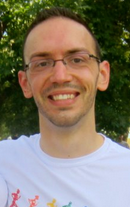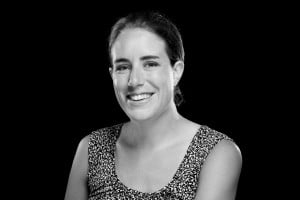 The following post was written by Kevin Harris, Administrative Assistant and Director of Community Relations at The Marin Foundation.
The following post was written by Kevin Harris, Administrative Assistant and Director of Community Relations at The Marin Foundation.
“It is indeed an absurd illusion to consider that we can work for peace, which means to be actively involved with people who are behaving in an unpeaceful way, if we are inwardly turbulent and ill-at-ease.” ~Adam Curle
For about 20 years, Chris and Phileena Heuertz directed the organization Word Made Flesh. With communities around the world, they seek to serve Jesus among the most vulnerable of the world’s poor. They incarnationaly live among those in difficult situations such as sex slavery, prostitution, and with child soldiers. A commitment to friendship, submission to one another and community are woven into the DNA of their organization, but they found that at times the tragedies and grief that they experienced while doing life with those on the margins slowly wore down some of their staff members to the point of burnout.
Chris and Phileena discovered that nearing burnout was an invitation to go deeper to delve into contemplative spirituality. To be actively engaged in mission and the lives of others with redemptive impact, they found the need to root their work and activism in a spirituality that helped them to rest in God and dismantle their notions of their false selves (the image we have built of ourselves and who we think we are that serves to please, satisfy and protect our ego) to more fully live out of their being beloved. Contemplative spirituality includes disciplines with the purpose of learning to “create space to be still and rest in God beyond words, thoughts and feelings. It is to abide in the love of God, to attend to the inner life, and to simply be with God in solitude, silence and stillness” (Phileena Heuertz in Pilgrimage of a Soul).
After finding that this contemplative spirituality helped to sustain them and fuel their activism within their communities at Word Made Flesh, Chris and Phileena founded Gravity │ a Center for Contemplative Activism to help others engaged in difficult work and ministry to “do good better”.
In addition to appreciating the work Chris and Phileena have done over the years and an interest in this contemplative activism that I heard them talking about, I went to their first annual retreat with Gravity at the St. Benedict Center in Schuyler, NE as part of a short time away from work in trying to be proactive about keeping myself from approaching burnout. I’m only a few years into my work with The Marin Foundation, but there are times that I find myself becoming tired.
As someone who is gay, I find the way that some talk about homosexuality (as if it were some kind of theological abstraction or argument) to be tiring considering that I cannot divorce the conversations from my sense of self. I find myself tiring of sweeping generalizations disconnected from relationships with LGBT people, such as pastors saying they do not see anything redemptive in the LGBT community when I’m trying with other LGBT friends (as imperfectly as it may be) to empty ourselves to God in order to be transformed and live in a redemptive way. And while I’m encouraged by so many faith communities, I tire of communities that see conversations about homosexuality and gender identity as an issue (i.e. pain) that they have to deal with rather than valuing LGBT individuals as beloved children of God with gifts that can help to make contributions to and complete the body of Christ while finding their way back to God like everyone else.
While it can be easy to become occupied with what I feel other people are doing wrong in the church or placing blame for why I feel tired, during the retreat we focused on where the work really needs to be done: within ourselves. We learned about and had opportunities to try different contemplative prayer practices like centering prayer, lectio divina, the prayer of examen and breath prayer.
While the prayer practices can help us to rest in God, they are not just merely practiced for the purpose of resting. We heard about how these disciplines can help us to let go and rest in God in order to receive the freedom that we cannot attain for ourselves and to surrender to the inner work that only God can do. We heard about the lies that we have built our images upon and how submitting ourselves to these types of prayer in silence before God can help us to step out of our false selves and more fully into our identities as beloved children of God. Ultimately, they were getting at what is at the heart of the Christian faith: to die and be reborn.
In the way that growth has slowly come over the years, I have often found that transformation can be painful. It’s generally not fun to acknowledge the pain and hurt that I still feel, and to see my own defensiveness, cynicism and the other negative qualities that I often hate in others existing in my own self as well. Sitting in silence to try to open myself to God to start to sift through some of these things can be an intimidating prospect because of the vulnerability entailed.
I’m finding, or at least I think I’m finding, that this whole process of living into relationships with and becoming reconciled to others who are different than us is much more dependent upon spiritual formation than it is about having the right information, beliefs and strategies. Though actions have an impact on our state of being, taking steps to engage others in a more civil way is merely another form of behavior modification (which is not necessarily bad) until we actually start to become the type of people that are more likely to behave in civil and loving ways.
I come up with strategies for engaging others in a more peaceful and productive way while ignoring the animosity and anger that I’m holding onto. They eventually come out in subtle ways that in turn inhibit relationships from developing. My ego that drives my desire to prove that I’m right and seeks to protect my self-image to be seen as good lends itself to defensiveness, perception management and at times difficulty in admitting when I’m wrong.
I’m merely getting started with this journey of seeking after contemplative spirituality with just a few months of centering prayer under my belt, but I’m looking forward to working on what really needs to be addressed to move forward in this journey within my own circles to build bridges or faithfully live into challenging friendships: myself and my own spiritual formation.
For more information and resources about contemplative activism, check out Phileena Heuertz’s blog and Gravity │a Center for Contemplative Activism.
Much love.











